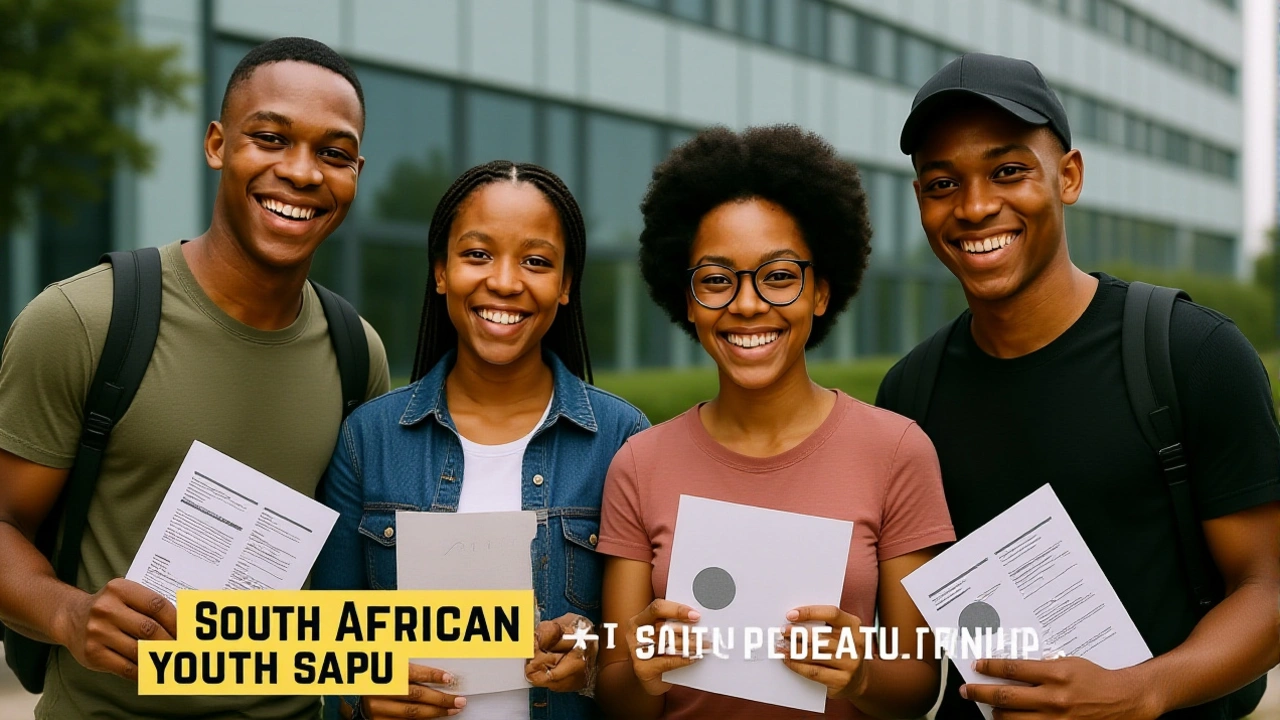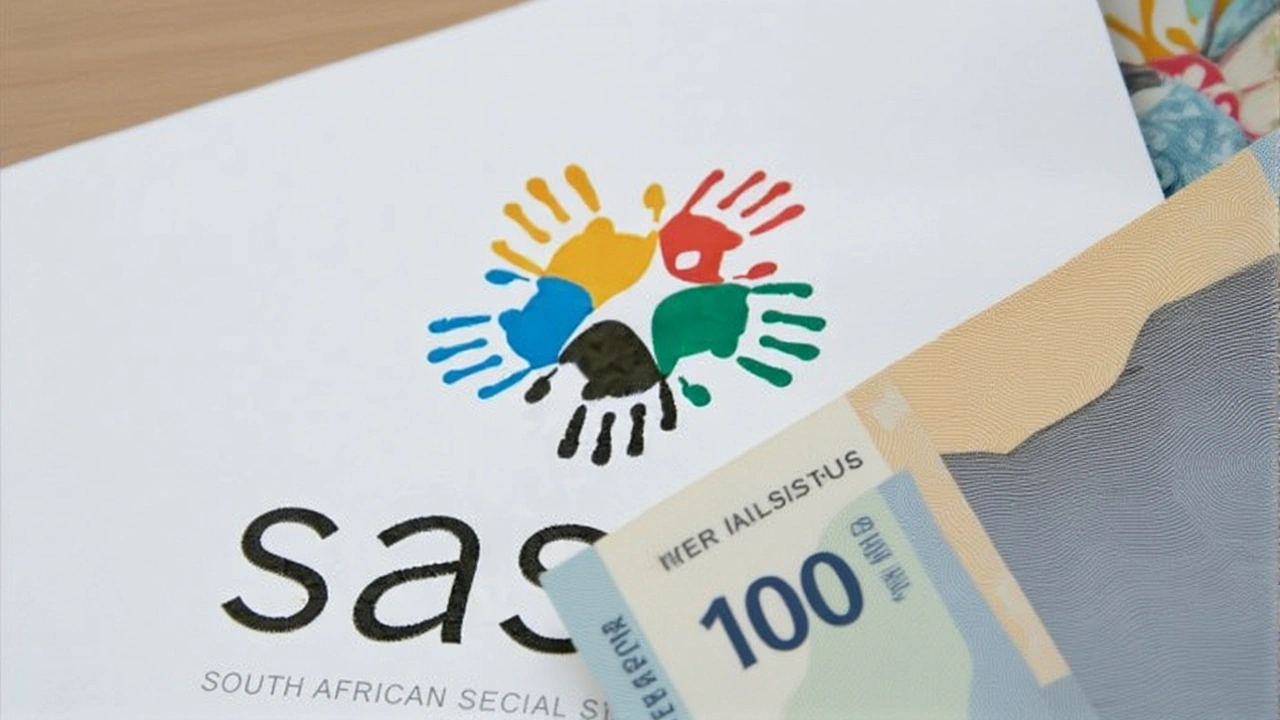When South African Social Security Agency (SASSA) and National Youth Development Agency (NYDA) publicly dismissed the viral claim of a new R12,500 youth grant hoax, South Africans were reminded how quickly misinformation can spread online. The agencies issued their joint statement on August 18, 2025, after the false claim flooded Twitter, Facebook and TikTok throughout the first half of the month. In a brief press conference in Pretoria, officials explained that no such grant has ever been proposed, and warned that the posts are designed to harvest personal data from vulnerable users.
The Viral Claim and Immediate Reactions
The rumor first appeared in a series of graphics that promised a one‑time payment of R12,500 to any South African aged 18‑35 who applied through a “government portal.” The posts were stamped with official‑looking logos and even cited a faux deadline of September 30, 2025. Within days, the hashtag #YouthGrant2025 trended, gathering more than 200,000 mentions according to local analytics firm DataPulse. Young people shared the images in WhatsApp groups, hoping for a quick financial boost amid rising living costs.
Official Denials from SASSA and NYDA
Both agencies moved swiftly. SASSA released a statement on its website, and NYDA posted a video on its official YouTube channel. "The alleged grant does not exist and we urge the public not to share these posts," said SASSA spokesperson Thandiwe Mbeki. NYDA’s communications officer, Sipho Dlamini, added, "Our youth development programmes are transparent and any real grant will be announced through the proper channels – not on random social media feeds."
How the Scam Operated
Investigators traced the original meme to a network of accounts operating out of an unknown location in the Eastern Cape. The posts directed users to a website that mimicked the official SASSA portal, requesting full name, ID number, bank details and even a small “verification fee” of R150. Cyber‑security firm SecureNet warned that the site harvested at least 3,200 sets of personal data before it was shut down on August 15, 2025.
- Claimed grant amount: R12,500 per applicant.
- Fake deadline: 30 September 2025.
- Verification fee demanded: R150.
- Data captured: approximately 3,200 individuals.
- Actual SRD grant amount: R370.
Impact on Vulnerable Communities
Many of the victims are recent graduates and informal sector workers who have seen their savings evaporate under soaring inflation. A 22‑year‑old from Soweto, who asked to remain anonymous, told the Johannesburg Daily News that she lost R150 after clicking the link, and now fears that her ID number could be used for identity theft. The hoax also targeted pensioners, who received similar messages promising “extra support” for their families.
Professor Lindiwe Nkosi, a communications researcher at the University of Johannesburg, explained, "Scammers exploit the trust people have in government bodies. By borrowing official branding, they create a veneer of legitimacy that’s hard to break, especially for those desperate for assistance."
Real Assistance Programs Still Available
While the R12,500 grant is a fabrication, SASSA continues to run legitimate programmes. The Social Relief of Distress (SRD) grant, currently set at R370, remains open to unemployed adults and those affected by COVID‑19 or other crises. Applications are processed through the Integrated Registration Outreach Programme (ICROP), which visits townships, informal settlements and rural areas on a rolling schedule.
Citizens can verify any grant by calling the toll‑free number 0800 60 10 11 (Monday‑Friday, 8 am‑5 pm) or by sending a WhatsApp message to 082 046 8553. SASSA also maintains a live chat on its official website, where users can ask about eligibility criteria without sharing sensitive data.
What to Watch for in Future Misinformation
Experts say the pattern is unlikely to disappear. The next wave may involve “student loan forgiveness” or “COVID‑19 booster subsidies.” The key warning signs include:
- Requests for upfront fees.
- Non‑government email domains (e.g., @gmail.com).
- Urgent language with tight deadlines.
- Links that do not end in .gov.za.
If a post looks too good to be true, it probably is. The Department of Social Development has pledged to launch a public awareness campaign later this year, targeting schools and community centres with printable flyers and radio spots.

Frequently Asked Questions
How does this hoax affect young job‑seekers?
Many young adults, especially recent graduates, are desperate for cash to cover rent and tuition. The fake grant lured them into giving away R150‑plus personal details, leaving them financially poorer and exposing them to identity theft.
What legitimate grants can I apply for right now?
The only active youth‑oriented grant from the government is the Social Relief of Distress (SRD) grant, currently valued at R370 per month. Applications are processed through the Integrated Registration Outreach Programme (ICROP) and can be verified via SASSA’s toll‑free line 0800 60 10 11.
Who is responsible for stopping these scams?
Both SASSA and NYDA are tasked with public education, but the primary responsibility lies with the Department of Communications and the South African Police Service, which investigate cyber‑crimes and run awareness campaigns.
How can I verify if a grant announcement is real?
Check the official websites of SASSA (sassa.gov.za) and NYDA (nyda.gov.za). Real announcements will be posted on their news sections, use a .gov.za domain, and will never ask for an upfront fee.
What steps should I take if I’ve already shared my ID number?
Contact the South African Police Service’s cyber‑crime unit immediately and request a fraud alert on your ID. Also monitor your bank accounts for any unauthorized transactions and consider contacting your bank to flag the account.






Himanshu Sanduja
September 29, 2025 AT 19:21It's sad how quickly these fake grant posts spread especially when many youths are struggling with rent and food
Ashutosh Kumar Gupta
September 29, 2025 AT 19:54People need to stop feeding the rumor mill it's ridiculous that anyone would fall for a fake R12,500 grant and then blame the government for not delivering miracles
fatima blakemore
September 29, 2025 AT 20:28i guess when hope is scarce folks will cling to any glittery promise even if its just a digital mirage lol
Prakash Dwivedi
September 29, 2025 AT 21:01Honestly the emotional toll of losing R150 and risking identity theft is real and can push vulnerable users deeper into financial despair
Rajbir Singh
September 29, 2025 AT 21:34Scams like this are a symptom of poor digital literacy; people must verify sources before sharing
Swetha Brungi
September 29, 2025 AT 22:08Think of it as a learning moment – next time you see a flashy grant claim, pause and check the official .gov.za site first. The agencies have clear channels and never ask for an upfront fee. Also, spread the word to friends and family so they aren't tricked. Keeping the community informed is the best defense against these scams.
Shubham Abhang
September 29, 2025 AT 22:41Well, you see, the thing is, these hoaxes thrive on desperation, and, unfortunately, many youths, especially in urban townships, lack the resources, to verify, each claim, before clicking, the link, which is why education, is crucial.
Trupti Jain
September 29, 2025 AT 23:14While the debunking effort is commendable, the persistent allure of a R12,500 windfall remains a dazzling chimera in the public imagination.
deepika balodi
September 29, 2025 AT 23:48Verify any grant through official portals only.
Priya Patil
September 30, 2025 AT 00:21Great reminder to always double‑check. If something sounds too good, it's probably a trap. Use the toll‑free SASSA line or the official website to confirm. Sharing this info can save someone's hard‑earned money.
Rashi Jaiswal
September 30, 2025 AT 00:54Stay positive fam 😊! Scams are nasty but we can outsmart them by staying alert and sharing the facts with our crew.
Maneesh Rajput Thakur
September 30, 2025 AT 01:28Don't be fooled – these scams are often orchestrated by groups that profit from data harvesting, and the lack of immediate government response only fuels the narrative of hidden agendas.
ONE AGRI
September 30, 2025 AT 02:01The digital age has gifted us with unprecedented connectivity, but it has also opened the floodgates to a relentless tide of misinformation.
The when a rumor about a R12,500 youth grant surfaces, it taps into the raw anxieties of a generation squeezed by soaring inflation.
Young people, already juggling precarious jobs and mounting rent, are primed to latch onto any promise of cash relief.
Scammers, aware of this desperation, craft their messages with painstaking attention to official branding, logos, and even faux deadlines.
The result is a veneer of legitimacy that can fool even the most cautious netizen for a fleeting moment.
Once the link is clicked, the victim is ushered into a counterfeit portal that mimics the real SASSA site down to the smallest detail.
Here, personal data-full name, ID number, bank details-are harvested under the guise of a modest verification fee.
In many cases, the R150 fee is merely a gateway to a deeper repository of stolen identities that can be sold on the dark web.
The psychological impact of realizing one's data has been compromised can be as devastating as the financial loss itself.
Trust in governmental institutions erodes, fostering a cynical outlook that may deter people from seeking genuine assistance.
Meanwhile, legitimate programs like the SRD grant continue to operate, but their modest sums stand dwarfed by the glittering false promises.
Community leaders and NGOs have a pivotal role in disseminating accurate information and teaching digital hygiene.
Simple steps-checking the URL ending in .gov.za, refusing to pay any upfront fee, and contacting official helplines-can break the scam's chain.
Moreover, reporting suspicious posts to platforms and authorities helps create a deterrent against future attacks.
In the end, collective vigilance and education are our strongest weapons to safeguard the vulnerable against such relentless exploitation.
Kiran Singh
September 30, 2025 AT 02:34Remember to check before you click 👍 Stay safe and spread the word 🌍
Balaji Srinivasan
September 30, 2025 AT 03:08Good reminder, thanks.
Hariprasath P
September 30, 2025 AT 03:41Such flimsy attempts at manipulation only underline the abyss of digital naiveté that plagues our society
Vibhor Jain
September 30, 2025 AT 04:14Oh sure, because the internet is just overflowing with trustworthy sources, right?
Rashi Nirmaan
September 30, 2025 AT 04:48The proliferation of fraudulent grant schemes constitutes a flagrant violation of civic responsibility and necessitates immediate, decisive action from both governmental bodies and the citizenry alike